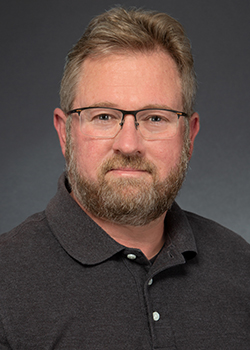Congratulations to all of this year's award recipients.
Join us in recognizing them at the below events during 2022 JAM:
ESA and ESC Awards Breakfast Featuring the Founders Memorial Lecture
(Professional and ECP Awards)
Tuesday, November 15, 2022 7:00 AM – 8:50 AM PT
Student Awards Ceremony
Tuesday, November 15, 2022 7:00 AM – 8:00 PM PT
Founders Memorial Award
- Christopher Beatty, Stanford University
Honorary Members
- Melody Keena, Ph.D., U.S. Forest Service
- Walter Leal, Ph.D., University of California, Davis
- Alvin Simmons, Ph.D., USDA Agricultural Research Service
Fellows
- Whitney Cranshaw, Colorado State University
- Claudio Gratton, University of Wisconsin, Madison
- Nannan Liu, Auburn University
- Richard Merritt, Michigan State University
- David Onstad, Corteva Agriscience
- Sujaya Rao, University of Minnesota
- David Shapiro-Ilan, USDA Agricultural Research Service
- John D. Stark, Washington State University
- Jeffery K. Tomberlin, Texas A&M University
Professional Awards
- Award for Excellence in Integrated Pest Management
David Kerns, Texas A&M University - Distinguished Achievement Award in Extension
Dominic Reisig, North Carolina State University - Distinguished Achievement Award in Teaching
Andrea Lucky, University of Florida - Nan-Yao Su Award for Innovation and Creativity in Entomology
Nina Jenkins, Penn State University - Distinguished Achievement Award in the Promotion of Diversity and Inclusion in the Field of Entomology
Margarita Lopez-Uribe, Penn State University - Science Communication Award
(1st Place) Bugs 101 Massive Open Online Course (MOOC), Maya Evenden, University of Alberta
(Runner-Up) Entomological News for Hebrew Speakers, Maya Saar, University of Florida
Certification Corporation Awards
- ACE Professional Award
Billy Olesen, ACE, PestStop - Distinguished Service Award to the Certification Program
Patricia Hottel, BCE, Terminix
Early Career Professional (ECP) Awards
- Henry and Sylvia Richardson Research Grant
Paulina Maldonado-Ruiz, Kansas State University - Early Career Innovation Award
Scott McArt, Cornell University - ECP Extension Award
Morgan Pinkerton, University of Florida - ECP Research Award
Karin Burghardt, University of Maryland - ECP Teaching Award
Ashleigh Faris, Texas A&M University
Student Awards
- Alate Award
Jonathan Hernandez, Texas A&M University
Brenda Leal-Galvan, Texas A&M University
Jesus Raymond Mireles, California State University, Fresno
Jessica Webb, University of California, Riverside - The Larry Larson Graduate Student Award for Leadership in Applied Entomology
Leonardo Salgado, Cornell University - Lillian and Alex Feir Graduate Student Travel Award in Insect Physiology, Biochemistry, or Molecular Biology
Molly Darlington, University of Nebraska-Lincoln - Student Activity Award
Hailey Shanovich, University of Minnesota - John Henry Comstock Award
Lídia Gual Gonzalez, University of South Carolina (ESA International Branch)
James Hepler, USDA-ARS (ESA Pacific Branch)
Maggie Lewis, Ohio State University (ESA Eastern Branch)
Alex Payne, Texas A&M University (ESA Southwestern Branch)
Anh Tran, ISK Biosciences (ESA North Central Branch)
James Villegas, Louisiana State University (ESA Southeastern Branch)
Founders Memorial Award
Christopher Beatty, Ph.D. has focused much of his entomological career studying the behavior and ecology of dragonflies and damselflies, having served in research and teaching positions at the University of Vigo (Spain), Santa Clara University, Cornell University, the University of Kiel (Germany), and Stanford University. He has authored or co-authored more than 25 peer-reviewed articles since 2003, and he is currently co-editing the forthcoming Dragonflies & Damselflies: Model Organisms for Ecological and Evolutionary Research, 2nd Edition (Oxford University Press).
He earned a bachelor's degree (1996) in ecology, ethology, and evolution at the University of Illinois Urbana-Champaign; a master's degree (2002) in environmental science from Oregon State University; and a Ph.D. (2006) in ecology, evolution, systematics, and population biology from Carleton University in Ottawa, Canada.
In 2011, Beatty joined the Entomological Society of America and has been an active member since. He served as the 2016-2017 president of ESA's Systematics, Evolution, and Biodiversity (SysEB) Section and is currently the SysEB representative to the ESA Education and Outreach Committee. He has also volunteered for a variety of community outreach projects, engaging public and K-12 audiences in insect science. Beatty is married to fellow entomologist Kathleen Harding; together they have a five-year-old son, Thomas.
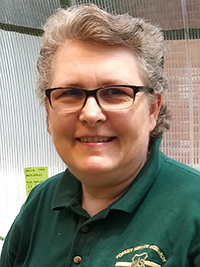 Honorary Members
Honorary Members
Melody A. Keena received a B.S. (1983), M.S. (1985), and Ph.D. (1988) in entomology at the University of California, Davis, working on spider mite pesticide resistance management in the almond cropping system. From 1989 to 1992 she was a postdoctoral researcher at the University of Connecticut and has been a research entomologist with the U.S. Forest Service in Hamden, Connecticut, since 1992. As lead scientist for the laboratory in Connecticut, she has received several awards including an Editor's Choice Award, USDA Certificate of Appreciation and Special Act Awards, Quality Step Increases (twice), and Superior or Outstanding performance reviews 12 of last 15 years.
Her research focuses on developing the knowledge and tools needed for exclusion, eradication or control of non-native invasive forest pests and investigating basic biology, behavior, and population genetics. She has directed and mentored graduate students in their research as an adjunct, taught biology and ecology courses to business majors, and has several international collaborations. Dr. Keena has published 101 refereed papers or book chapters, presented 88 invited presentations (including keynote addresses to international entomological societies), and contributed an additional 125 presentations. She is considered an international expert on the biology and behavior of spongy moth and Asian longhorned beetle and is sought to review country-level risk assessments and provide webinars to train local managers on these insects.
Dr. Keena has been an active member of ESA, the Eastern Branch, and the Physiology, Biochemistry and Toxicology Section (formerly Section B, Integrative Physiological and Molecular Insect Systems) for 39 years (for the last 5 years also a member of Plant-Insect Ecosystems Section). She has presented, invited, or contributed talks at 34 ESA Annual Meetings and organized four symposia. She was encouraged by a supervisor to get involved in the Society in the early 1990s and has continued to be involved in one or more ways every year since. In the Eastern Branch she has served on and chaired several Branch committees including employment, finance, registration, auditing, resolutions, program, and student competition. She also served as the elected member-at-large on the Eastern Branch Executive Committee. While serving on the student competition committee, she developed improved judging sheets.
Her national committee service includes: membership (1997-99, chair last two years), finance (2002-07), program (2007, 2013-2015, co-chair last year), strategic planning (1999), technology (in 2004 helping premiere the first digital presentations and 2016 for the International Congress of Entomology), honors and awards (2009-11), systematic resources (2001-03), and presidential committees. While serving on the membership committee, she successfully presented proposals to start the family and transitional membership categories to the Governing Board. During her years on the finance committee, the Society went through turbulent times dealing with more than one executive director and the sale of ESA's office building to improve its finances. At the very successful 2015 annual meeting, she and her program co-chair developed the concept of organized meetings for groups regularly meeting with ESA and determined that presentations made in these meetings should not count against the conference presentation limit. As student competition co-chairs in 2014, they developed improved methods for tracking the student competitions. At the Section level, Keena was secretary, vice-chair, chair, and past chair of Section B (2005-08) and was subsequently elected as Governing Board representative (2009-11) for the newly named Physiology, Biochemistry, and Toxicology section during the section reorganization.
Dr. Keena served as a member and chair of the editorial board for the Journal of Integrated Pest Management (2011-2015), a physiological ecology subject editor for Environmental Entomology (2015–2019), and is currently co-editor-in-chief for Environmental Entomology (2019-present). As co-editor-in-chief of the journal, she has instituted the annual Reviewer's and People's Choice Awards, improved the diversity of the subject editor pool, overseen the creation of the very successful special collection on the spotted lanternfly, developed a new subject area and updated descriptions of the sections, and took the lead in creating an organized meeting for the journal (along with the Journal of Economic Entomology) at the ESA Annual Meetings where the award winners present an invited talk and the co-editors-in-chief can interact with members about the journals.
Throughout her career, Dr. Keena has encouraged many members and students to get involved in the Society, including actively participating in the Women in Entomology breakfasts, and she sees this as a critical part of any successful scientist's role in giving back to the Society and passing on the passion for entomology to the next generation.
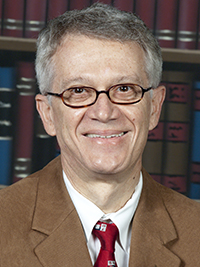 Walter Soares Leal, a distinguished professor at the University of California, Davis, is a world-renowned entomologist, educator, and researcher. A native of Brazil, he received his B. Eng. degree in chemical engineering from the Federal University of Pernambuco, Recife, Brazil; his M.Sc. in agricultural chemistry from Mie University, Japan; and his Ph.D. in applied biochemistry from the University in Tsukuba, Japan, with subsequent postdoctoral training in entomology and chemical ecology at the National Institute of Sericultural and Entomological Science and Cornell University, respectively. Leal joined the UC Davis faculty in 2000 and chaired the Department of Entomology from 2006 to 2008. He taught insect physiology for 15 years and currently teaches large-enrollment biochemistry classes.
Walter Soares Leal, a distinguished professor at the University of California, Davis, is a world-renowned entomologist, educator, and researcher. A native of Brazil, he received his B. Eng. degree in chemical engineering from the Federal University of Pernambuco, Recife, Brazil; his M.Sc. in agricultural chemistry from Mie University, Japan; and his Ph.D. in applied biochemistry from the University in Tsukuba, Japan, with subsequent postdoctoral training in entomology and chemical ecology at the National Institute of Sericultural and Entomological Science and Cornell University, respectively. Leal joined the UC Davis faculty in 2000 and chaired the Department of Entomology from 2006 to 2008. He taught insect physiology for 15 years and currently teaches large-enrollment biochemistry classes.
He served as a councilor and president of the International Society of Chemical Ecology. Leal joined ESA in 1999. In 2019, when he received an ESA 20-year member pin and a letter saying, "THANK YOU for your continued support of ESA," Leal tweeted: "I should thank @EntsocAmerica for supporting my career for 20 years, not the other way around." For more than two decades, Leal has been very active in ESA affairs. He has organized symposia at the Annual Meetings; served as secretary, president, and past president of the ESA IPMIS Section (now PBT); and nominated colleagues for awards and elected offices. He organized more than a dozen Program and Section Symposia and included outstanding scholars and newly minted ESA members as speakers or co-organizers. These symposia included sponsored luncheons, social hours, and discussion sessions to promote interaction among attendees and speakers and build and cement collaborations.
He and Alvin Simmons (nominated by Grayson Brown and appointed by the Governing Board), co-chaired the 2016 International Congress of Entomology (ICE2016). The co-chairs served from 2010 to 2016 with seven ESA Presidents: David Hogg, Ernest Delfosse, Grayson Brown, Robert Widemann, Frank Zalom, Phil Mulder, and May Berenbaum. They prepared a 576-page bid, organized the program, promoted the Congress, and delivered one of entomology's most memorable events (6,682 registrants from 102 countries). Leal considers the enormous amount of time he dedicated to ICE2016 as "a highlight" of his career and "a justifiable sacrifice" to his research program. Today Leal serves as a member of the Council of the International Congresses of Entomology (CICE), a member of ICE2020 Helsinki LOC, and a Special Advisor (CICE Liaison) for ICE2024.
For the last 22 years, Leal's research program has been sponsored by the National Institute of Allergy and Infectious Diseases of the National Institutes of Health, the United States Department of Agriculture, the National Science Foundation, commodity groups, research agreements, and gifts from various donors. Leal has published more than 200 peer-reviewed papers in a variety of entomology and multidisciplinary journals, including the Proceedings of the National Academy of Sciences of the USA (PNAS), Nature, iScience, Journal of Medical Entomology, Insect Biochemistry, and Molecular Biology. His research, with an h-index of 61, has been cited more than 13,500 times. Leal's top three most-cited publications are a 2013 review on insect olfaction (Annual Review of Entomology, 1,084 citations); the first report of pheromone-binding protein structure (Chemistry & Biology, 502 citations); and the discovery of neurons sensitive to DEET (PNAS, 329 citations). Recently, Leal reported (BioRxiv, BIORXIV/2022/485336) on the structures of two odorant receptors and how they are narrowly tuned to the oviposition attractants skatole and indole.
Highly honored by his peers, Leal delivered ESA's 2019 Founders' Memorial Lecture on "Tom Eisner: An Incorrigible Entomophile and Innovator Par Excellence." He is an Honorary Fellow of the Royal Entomological Society (2015) and Fellow of the American Association for the Advancement of Science (2005), ESA (2009), and California Academy of Sciences (2015). He received both the Medal of Achievement (1995) and the Medal of Science (2008) from the Entomological Society of Brazil and the 1998 Gakkaisho from the Japanese Society of Applied Entomology and Zoology. The International Society of Chemical Ecology honored him with the Silverstein-Simeone Award (2007) and the Silver Medal (2012). In 2012, Leal was elected to the Brazilian Academy of Science (inducted in 2013). For his creativity in entomology, Leal received ESA's Nan Yao Su Award (2011) and was elected a Fellow of the National Academy of Inventors (2019). The UC Davis Academic Senate awarded him both the Distinguished Teaching Award (2020) and the Distinguished Scholarly Public Service Award (2022).
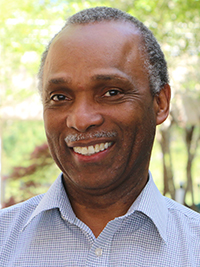 Dr. Alvin M. Simmons is a research entomologist at the USDA-Agricultural Research Service (ARS), U.S. Vegetable Laboratory in Charleston, South Carolina. Simmons received his B.S. in biology (East Carolina University, 1980), and M.S. (1983) and Ph.D. (1987) in entomology (University of Kentucky). Simmons leads two in-house USDA-ARS projects (one on vegetable entomology and another on food and ornamental research). Also, Simmons is the USDA-ARS coordinator for the Minor Use Pesticide Program for Food and Ornamental Horticulture; this program concerns field and laboratory research by USDA-ARS in cooperation with the national IR-4 Project to support the registration of all classes of pesticides for specialty crops (including fruits, nuts, vegetables, herbs, and floral).
Dr. Alvin M. Simmons is a research entomologist at the USDA-Agricultural Research Service (ARS), U.S. Vegetable Laboratory in Charleston, South Carolina. Simmons received his B.S. in biology (East Carolina University, 1980), and M.S. (1983) and Ph.D. (1987) in entomology (University of Kentucky). Simmons leads two in-house USDA-ARS projects (one on vegetable entomology and another on food and ornamental research). Also, Simmons is the USDA-ARS coordinator for the Minor Use Pesticide Program for Food and Ornamental Horticulture; this program concerns field and laboratory research by USDA-ARS in cooperation with the national IR-4 Project to support the registration of all classes of pesticides for specialty crops (including fruits, nuts, vegetables, herbs, and floral).
Simmons has a research career of 42 years (35 years with USDA-ARS and seven years of graduate research). He has authored over 120 refereed journal articles, several book chapters, co-released five breeding lines, and provided over 300 technical reports resulting in over 200 pesticide labels. Simmons has provided vital information on addressing problems across a wide range of agricultural entomology, including plant resistance, bionomics, biocontrol, cultural control, biopesticides, insect-virus-plant relationships, and research in support of various technologies for whitefly management.
He has given invited talks to numerous domestic and international audiences and has traveled to 30 different countries. Simmons provides service in entomology by taking a very active role in scientific societies, conferences, workshops, consultation to the agricultural community, mentoring postdoctorates, mentoring graduate students, mentoring undergraduate students, and serving on numerous panels.
Simmons' service to ESA has been extensive and impactful. He has been a member of ESA since 1981 and has participated in 37 Annual Meetings and over 50 Branch Meetings. Inclusion has been his mantra since day one. His ESA service includes president of ESA; president of the Entomological Foundation (as final president, 2018-2019, after which key activities were incorporated by other ESA programs); president of the Southeastern Branch (SEB); co-chair of the 2016 International Congress of Entomology (ICE); co-chair of the Presidential Committee on ESA ICE Bid; chair of International Affairs Committee (a precursor to formation of the International Branch); 11 years on Entomological Foundation Board of Counselors; co-chair of Program Committee; co-chair of Local Arrangements and Technology Committee; chair of Science Policy Committee; Committee on Education and Youth; Committee on the Entomology Games (then called Linnaean Games); co-PI (Simmons & Oseto) on National Science Foundation Travel Grant for travel to ICE2000 (Brazil) ($50,000 awarded to ESA); organized and chaired numerous symposia; SEB Entomology Games judge (10 years); twice chair of SEB Program Committee, three times chair or co-chair of SEB Local Arrangement Committee; SEB chair of Nominating Committee; and SEB executive committee (presidential line and member-at-large). Simmons proposed and led SEB to include Puerto Rico as a Branch Meeting location so that local SEB members in Puerto Rico would have an opportunity to attend a local Branch Meeting (first time was in 2011 and second time was in 2022).
Simmons and his co-chair "twin," Walter Leal (University of California-Davis), worked intensely for two years to develop, in concert with others, a winning ICE2016 bid after gaining extensive domestic and international support. This was a massive impact because it had been 40 years (1976) since ESA hosted an ICE event; the only other ICE meeting held in the U.S. was in 1928. After ESA received the bid, co-chairs Simmons and Leal spent the next four years in extensive planning and promoting of ICE2016 at copious domestic and international events. With an inclusive theme (Entomology without Borders) that Simmons and Leal conceived for ICE2016, the co-chairs invited inclusively domestic and international people to help organize programing for all subjects of entomology. Over 160 researchers from 38 countries were selected by the co-chairs for the organizing committee. Nearly 6,000 presentations were given at ICE 2016, the largest gathering of entomologists in history (nearly 7,000 from 101 countries). In 2020, Simmons presided over the largest gathering of entomologists in a virtual setting (over 3,100 from 52 countries) under the inclusive theme "Entomology for All" when he served as the 2020 ESA President.
Among activities for other societies, Simmons is currently serving on the ICE2022 Organizing Committee, International Plant Resistance to Insects Steering Committee, and 2023 European Congress of Entomology Organizing Committee. Among Simmons' honors are Department of Entomology Distinguished Alumni Award, University of Kentucky (first recipient); IR-4 Meritorious Award; SEB Award for Excellence in IPM; Recognition Award in Entomology; Fellow of the Royal Entomological Society; and former president of South Carolina Entomological Society.
Fellows
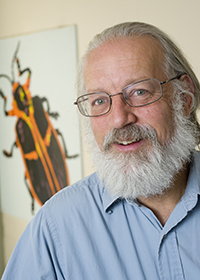 Dr. Whitney Cranshaw, emeritus professor with the Department of Agricultural Biology at Colorado State University (CSU), was elected Fellow in 2022. During his career, he pursued broad interests in advancing IPM practices, with a focus on arthropod issues of importance in the Rocky Mountain region. His work in advancing entomology in the area of landscape/home horticulture is perhaps most widely recognized.
Dr. Whitney Cranshaw, emeritus professor with the Department of Agricultural Biology at Colorado State University (CSU), was elected Fellow in 2022. During his career, he pursued broad interests in advancing IPM practices, with a focus on arthropod issues of importance in the Rocky Mountain region. His work in advancing entomology in the area of landscape/home horticulture is perhaps most widely recognized.
Cranshaw was born in Ancon, Canal Zone, in 1952 but grew up in Wellesley, Massachusetts, where he spent most weekends exploring fields and ponds for reptiles, amphibians, and insects. After high school he worked at a medical research laboratory, then took off in June 1971 to ride his bicycle from Wellesley to San Francisco, spending the end of the summer at the Berkeley Ecology Action Commune. He then entered Hampshire College, during which time his interest in entomology was rekindled, fueled by a fascinating introductory entomology course taught by Michael Peters and exposure to possibilities he saw in IPM thought emerging at that time. Employment at the UMass Insect Ecology Lab with Pedro Barbosa, and assisting John Capinera, were immense influences on his career. He then pursued M.S. and Ph.D. degrees with Ted Radcliffe at the University of Minnesota, where his dedication to finding IPM solutions was solidified in trying to address solutions to a variety of vegetable crop problems.
In 1983, Cranshaw began assignment at CSU, with primary responsibilities in horticultural entomology. This involved a full program in extension, teaching, and research. During his career, he took on a challenge to "improve the entomological literacy of the people of Colorado," always with an IPM foundation, and he found useful the concurrent responsibilities of extension/teaching/research. Most research programs devolved from bottom-up contacts through extension programming. Extension programs synergized Cranshaw's teaching, and vice versa.
In addition to teaching several on-campus courses, Cranshaw was regularly invited to speak on his work 40 to 50 times per year, both in-state and nationally. He also wrote prolifically on topics including development of butterfly gardening concepts (1985); identification of new insect/plant pathogen associations (e.g., thousand cankers of Juglans); issues related to regional household insects; description of insects affecting regional insects of vegetable, yards/homes; and, most recently, the arthropod fauna of hemp. Among books he published are Bugs Rule: An Introduction to the World of Insects (co-written by Rick Redak), developed to support a highly successful course he developed oriented to nonscience majors, and Garden Insects of North America (2nd Edition with David Shetlar), which is a standard diagnostic resource used throughout the United States.
Other contributions include a long commitment to the ESA Standing Committee on Common Names, including five terms as chair; continuous provision of open-source images (more than 6,400) related to insects and agriculture through Bugwood.Org; and establishment (with Mike Merchant) and maintenance of the OrnaEnt listserv, a communications media for entomologists with interests in landscape entomology. He is also particularly proud to have had all 37 of his graduate student advisees successfully complete their graduate programs.
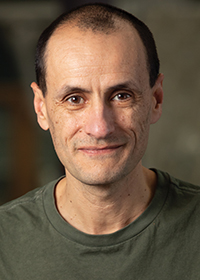 Dr. Claudio Gratton, a professor in the Department of Entomology at the University of Wisconsin, Madison (UW), was elected Fellow in 2022. He is internationally known for his research on the landscape ecology and conservation of beneficial insects in terrestrial landscapes.
Dr. Claudio Gratton, a professor in the Department of Entomology at the University of Wisconsin, Madison (UW), was elected Fellow in 2022. He is internationally known for his research on the landscape ecology and conservation of beneficial insects in terrestrial landscapes.
Gratton was born outside of Rome, Italy, in 1970, and his family immigrated to central Illinois in 1978. He attended the University of Illinois at Urbana-Champaign (UIUC) for his undergraduate studies, where he obtained a B.S. in honors biology. Inspired by his entomology professors at Illinois, he moved to the University of California, Berkeley, in 1991 to enter the entomology graduate program. There he studied the evolutionary ecology and host-specialization of herbivorous insects and obtained his Ph.D. in 1997. Gratton moved to the East Coast for postdoctoral work with Dr. Bob Denno at the University of Maryland, where he shifted his focus to arthropod food webs and predator-prey interactions in salt-marsh ecosystems. In 2003, he started a faculty position in the Department of Entomology at the University of Wisconsin. At UW, he is also an affiliate faculty in the Department of Integrative Biology and the Nelson Institute for Environmental Studies.
Gratton's research on the ecology of arthropods expanded to explore the relationship between agricultural landscapes and insect conservation. Using a range of approaches, including landscape experiments and eco-informatics, his group showed that "simplification" of landscapes in ways that increase the dominance of agricultural land and reduce the diversity of crop and non-crop habitats generally have negative consequences for beneficial insects such as bees and predatory insects. Dispersal from non-crop habitats is often a mechanism through which beneficial insects influence pollination or pest suppression within agricultural fields. The ecology of linkages between adjacent habitats is a broader theme in Gratton's research. He pursued these ideas through work in northern Iceland, where he and his team spent more than 15 years exploring how mass midge emergences from lakes influence soils, plants, and arthropod food webs in the neighboring terrestrial systems. Gratton's work is highly interdisciplinary, as seen in collaborations with colleagues in soils, plant ecology, ecosystem ecology, limnology, and spatial ecology. His interests in the application of science to inform agroecological landscape transformations expanded to include multistakeholder participatory approaches to land-use planning through the development of on models, decision-support systems, and place-based research.
Gratton's scientific work is represented in more than 145 peer-reviewed papers across more than 60 different journals. Gratton has helped train a new generation of interdisciplinary scholars by mentoring seven M.S. students, 10 Ph.D. students, and 15 postdoctoral scientists. At UW, he was awarded a Kellett professorship (2021), honored with Pound (2012) and Romnes (2012) Research Awards, and received a postdoctoral mentoring award (2018). He was honored with a Distinguished Alumnus Lecture at UIUC (2019). Gratton was an Aldo Leopold Leadership Fellow at the Stanford/Woods Institute (2013).
Gratton and his wife, Brenda, are the parents of Elena (a budding entomologist) and Paolo. His less entomological activities include baking bread and pizza, biking down mountainsides, and camping with friends.
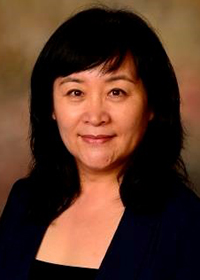 Dr. Nannan Liu, professor in the Department of Entomology and Plant Pathology, Auburn University, was elected ESA Fellow in 2022. She is nationally and internationally recognized for her research on insect molecular toxicology and insect physiology relating to the development of insecticide resistance in insects.
Dr. Nannan Liu, professor in the Department of Entomology and Plant Pathology, Auburn University, was elected ESA Fellow in 2022. She is nationally and internationally recognized for her research on insect molecular toxicology and insect physiology relating to the development of insecticide resistance in insects.
Liu was born in Beijing, China. She earned her B.S. in entomology from China Agricultural University in 1982. She received her Ph.D. degree in entomology from Cornell University in 1995, where her research, under the supervision of Dr. Jeff Scott, focused on the molecular genetics of insecticide resistance in house flies. After graduation, she was awarded an NIH postdoctoral fellowship to investigate the molecular mechanisms involved in heme oxygenase gene regulation in rats at the University of Rochester's School of Medicine and Dentistry (1995-1996). As a postdoctoral research associate at Cornell University (1996-1997), her emphasis shifted to the molecular regulation of P450 gene expression and regulation in insecticide resistance of house flies.
Liu joined the faculty of Auburn University in 1997 and is now a full professor in the Department of Entomology and Plant Pathology. She served as the department chair of entomology and plant pathology at Auburn University from 2014 to 2020. Her research, which has benefitted from strong support from multiple highly competitive sources such as NIH and USDA, as well as diverse sources such as commodity organizations and state and university funding bodies, focuses on molecular toxicology/physiology relating to the development of insecticide resistance in insects, especially mosquitoes and house flies. Liu has published 115 peer-reviewed research articles (h-index 48), six book chapters, two genome database publications, and seven proceedings. Liu has served as the sole editor for the book Recent Advances in Insect Physiology, Toxicology, and Molecular Biology. Liu was honored to have been invited to contribute a review chapter entitled "Insecticide Resistance in Mosquitoes: Impact, Mechanisms, and Research Directions" in the Annual Review of Entomology. Published in 2015, this review has garnered 662 citations as of 2022. Her research accomplishments have been widely recognized, including most recently the ESA Southeastern Branch Recognition Award in Insect Physiology, Biochemistry, and Toxicology (2022).
During the course of her career, Liu has served as major advisor for 23 graduate students (17 Ph.D. and six M.S. students) and supervised 15 postdoctoral fellows and visiting scientists. Many are now successful researchers/professors in molecular biology, physiology, and toxicology. Liu has also served as the coach for Auburn University's Graduate Student Entomology Game since 2018. Her team was awarded first place in the SEB-ESA Entomology Games in both 2021 and 2022 and placed first in ESA's 2020 National Entomology Games Competition.
Liu has served ESA and SEB-ESA in several roles over the years, including as vice president and president of the Physiology, Biochemistry, and Toxicology Section of ESA (2014-2016) and as program chair (2009) and co-chair of the Student Award Committee of SEB-ESA (2021 to present).
Liu married her college sweetheart, Dr. Lee Zhang, and they have a son, Anthony, and a daughter, Annie.
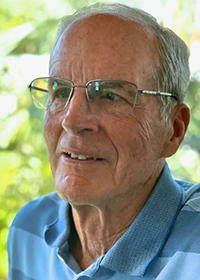 Dr. Richard Merritt, University Distinguished Professor Emeritus at Michigan State University (MSU), was elected as Fellow in 2022. Merritt's research over his career involved population dynamics, feeding ecology, and influence of environmental factors on immature aquatic insects. Major efforts were directed toward the following projects: 1) filter-feeding ecology of aquatic insects (mainly black flies and mosquitoes); 2) forensic entomology, primarily determining the postmortem interval in death investigations (Diptera); 3) leaf litter processing and biomonitoring in lotic ecosystems; 4) effects of marine-derived nutrients on aquatic insects in Alaska; and 5) ecology of a neglected infectious tropical disease (Buruli Ulcer) in Africa involving insects.
Dr. Richard Merritt, University Distinguished Professor Emeritus at Michigan State University (MSU), was elected as Fellow in 2022. Merritt's research over his career involved population dynamics, feeding ecology, and influence of environmental factors on immature aquatic insects. Major efforts were directed toward the following projects: 1) filter-feeding ecology of aquatic insects (mainly black flies and mosquitoes); 2) forensic entomology, primarily determining the postmortem interval in death investigations (Diptera); 3) leaf litter processing and biomonitoring in lotic ecosystems; 4) effects of marine-derived nutrients on aquatic insects in Alaska; and 5) ecology of a neglected infectious tropical disease (Buruli Ulcer) in Africa involving insects.
Merritt was born in San Francisco, California, and grew up in the Bay Area. He received his B.S. in biology at San Jose State University, then obtained his M.S. in entomology at Washington State University under M.T. James. He accepted an NIH traineeship at the University of California, Berkeley, and completed his Ph.D. in medical/veterinary entomology under J.R. Anderson. He took an assistant professor position at MSU in 1974.
Merritt was department chair of entomology, MSU, from 2002 to 2008. He is a Diplomate of the American Board of Forensic Entomology and a Fellow of the American Academy of Forensic Sciences (AAFS). He has published more than 250 scientific articles and co-edited five editions of the textbook An Introduction to the Aquatic Insects of North America, as well as a book titled Black Flies: Ecology, Population Management, and Annotated World List. He has served as associate editor for three journals, The American Midland Naturalist, Freshwater Invertebrate Biology, and Journal of Medical Entomology. Merritt taught two main courses, one in aquatic entomology and the other in forensic entomology, as well as courses in biomonitoring of streams and rivers and insect ecology on occasion. He received the MSU Distinguished Faculty Award in 2004 and received a Fulbright Scholar Award in 1986. He spent a sabbatical in London, England, where he was made an Honorary Research Fellow at University College, London. He received the Award of Excellence from the Society of Freshwater Science in 2007 and was made an Inaugural SFS Honorary Fellow in 2017. In 2011, he was awarded the title of MSU University Distinguished Professor. He is a Fellow of AAFS and received the Lifetime Achievement Award in 2017. He was recently (2021) recognized as one of the Legends in Entomology by ESA. He mentored more than 40 graduate students and three postdocs. He is still an avid fisherman and racquetball player.
He is married to his wife, Pamela, with whom he has two sons and three granddaughters. His son, Brett, obtained his Ph.D. at MSU in science education and teaches at the American School in Switzerland with his wife, Kelly. His son, Scott, who along with his wife, Hailey, lives in Atlanta, is head of automation for Northwest Mutual Life Insurance Company.
Dr. David Onstad, research scientist at Corteva Agriscience, was elected Fellow in 2022. He was recognized for his expertise in economics of IPM, insect epizootiology, ecological modeling of insect populations, and insect resistance management.
Onstad was born in 1957 and raised in Sacramento, California. He earned a B.Sc. degree in biology at California State University, Sacramento. From 1979 to 1985, he attended Cornell University in Ithaca, New York, where he earned an M.Sc. degree in environmental engineering and a Ph.D. in entomology. In 1981, he carried out research concerning optimization of insect and plant-disease management with a fellowship at Wageningen University in The Netherlands. He became a professor in the College of Agriculture at the University of Illinois, Urbana-Champaign, in 1985 and worked there until retirement in 2011. His second career began in 2011 as a senior research scientist at DuPont Pioneer in Wilmington, Delaware, where his focus was on insect resistance management and predictions based on mathematical modeling. Dupont Pioneer became part of Corteva Agriscience in 2018. Onstad's third career will be determined in 2023.
Onstad has modeled population dynamics and genetics of more than 30 species of insects and insect pathogens. Most of these are pests, but he has also modeled biological control agents and honey bees. To help with decision making by farmers and government agencies, Onstad has also included cost-benefit analyses in some of these models. In 2019, he published a book on economics of integrated pest management of insects to provide an overview of the economic methods and the value of IPM. Many of Onstad's models have also been used to predict the evolution of insects targeted by insecticides and insecticidal crops (host-plant resistance). The third edition of his book on insect resistance management will be published in 2022. In the 1990s, Onstad developed models of epidemics of pathogens in insect populations and created the Ecological Database of the World's Insect Pathogens, which still exists on the internet.
Onstad has served ESA since 1992. Most recently, he served as president of the Plant-Insect Ecosystems Section in 2021. Before the implementation of the modern editor-in-chief positions for the journals, Onstad was a co-editor and subject editor of Environmental Entomology from 2000 to 2004. He later returned to the journal to be subject editor for another 10 years, from 2010 to 2019. In 1997, Onstad was a cofounder of ESA's Subsection on Quantitative Ecology. He then served as secretary, chair-elect, and chair of the subsection from 1998 to 2000. He helped to write the original and revised ESA Position Statement on Resistance Management for Genetically Modified Crops as a member of committees in 2015 and 2020.
Onstad's wife, Dawn Dockter, is an entomologist who has collaborated with him on a few nonagricultural projects regarding insect pathology and ecology. Their daughters, Nora and Emma, are engineers.
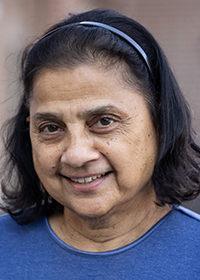 Dr. Sujaya Rao, professor and department head for entomology at the University of Minnesota (UMN), was elected ESA Fellow in 2022. Her career has spanned research, teaching, extension, and administration at universities and leadership for ESA. Rao has also led unique graduate and undergraduate education programs that have enhanced the profile of entomology.
Dr. Sujaya Rao, professor and department head for entomology at the University of Minnesota (UMN), was elected ESA Fellow in 2022. Her career has spanned research, teaching, extension, and administration at universities and leadership for ESA. Rao has also led unique graduate and undergraduate education programs that have enhanced the profile of entomology.
A native of India, Rao's interest in entomology was sparked during her B.S. and M.S. degree programs in zoology at the University of Delhi, India. She traveled to the United States to pursue a Ph.D. degree in entomology at UMN. Her thesis and subsequent postdoctoral research at the University of Delaware and the University of California at Berkeley (UC) were focused on the chemical ecology of plant-pest-parasitoid interactions and on biological control. She was hired as an extension advisor for UC Cooperative Extension and then as assistant professor at Oregon State University (OSU), where she advanced to full professor. As an OSU faculty member, her research covered integrated pest management and pollination by native bees. She then moved to her alma mater, UMN, to serve as the entomology department head.
Rao was inspired to enhance education through experiential learning when she attended a workshop on interactive learning as a graduate student at UMN. In her first effort at implementation, she led an NSF GK-12 program at OSU that provided graduate and undergraduate students with a unique experience in developing and implementing inquiry-based lessons for K-12 classrooms that creatively integrated entomology with other disciplines. This year-long experience inspired participants to later pursue careers involving teaching and outreach. A subsequent NSF REU (Research Opportunities for Undergraduates) summer research program on pollination biology at OSU drew participants nationwide and empowered them with experiences for conducting independent research, nationally and internationally, for degrees at their respective institutions. In Rao's unique Partners in Nature program, sponsored by Toshiba America Foundation, rural middle-school students gained an "entomologist's experience" by engaging in pollination research in their schools—asking questions and collecting and organizing data—and presenting results at a campus conference. Impacts of these programs led to Rao's selection as director for undergraduate research at OSU, in which role she engaged under-represented (minority, freshman, first-generation, non-STEM major) students across all disciplines in research and creative activities. At UMN, Rao engaged her faculty in reimagining undergraduate entomology education, which drew students from majors typically under-represented in entomology courses, such as aerospace engineering, business management, design, kinesiology, and nursing; several students later enrolled in the rapidly growing insect science minor.
Rao has received $1.8 million for her education activities. She has shared her programs and their outcomes through peer-reviewed publications, presentations, teaching symposia, and education workshops. Her teaching achievements were recognized with seven awards, including the ESA Distinguished Achievement in Teaching Award, two OSU Team Awards, and the UMN Hodson Alumnus Award.
After many years of addressing insect issues as pests and pollinators in food crops, as a professional "hobby" Rao is now promoting insects as food sources for humans—entomophagy!
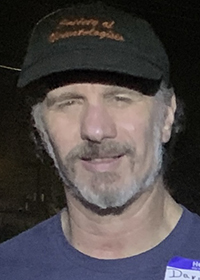 Dr. David Shapiro-Ilan, research leader and supervisory research entomologist at USDA-ARS, Southeastern Fruit and Tree Nut Research Station in Byron, Georgia, was elected Fellow in 2022. He is internationally known for his work on invertebrate pathology and microbial control; he has focused his research primarily on entomopathogenic nematodes but has also studied entomopathogenic fungi extensively, as well as other pathogen groups.
Dr. David Shapiro-Ilan, research leader and supervisory research entomologist at USDA-ARS, Southeastern Fruit and Tree Nut Research Station in Byron, Georgia, was elected Fellow in 2022. He is internationally known for his work on invertebrate pathology and microbial control; he has focused his research primarily on entomopathogenic nematodes but has also studied entomopathogenic fungi extensively, as well as other pathogen groups.
Shapiro-Ilan was born in New York City and grew up in the Bronx. He received a B.S. in biology from the University of Michigan-Ann Arbor (1984) and served in the Peace Corps in Niger, West Africa, conducting crop protection and rural development projects (1985-1987). Shapiro-Ilan obtained an M.S. in entomology from Louisiana State University (1989) studying under Jim Fuxa. In 1990, Shapiro-Ilan was a farm apprentice on a diverse organic farm near Viroqua, Wisconsin. He earned his Ph.D. in entomology from Iowa State University (1994) studying under Les Lewis. Shapiro-Ilan was a Fulbright postdoctoral scholar at the Volcani Center in Israel (1994-1996) in the lab of Itamar Glazer. Subsequently, he spent 2.5 years as a research insect pathologist with Integrated BioControl Systems Inc., and one year as an assistant in entomology at the University of Florida Citrus Research and Education Center in Clay McCoy's lab. He joined USDA-ARS as a research entomologist in 2000 and became research leader in 2019.
Shapiro-Ilan's research has focused on fundamental and applied invertebrate pathology and microbial control. His work resulted in improved methods of strain development, production, formulation, and application of microbial control agents. Improved entomopathogenic nematode production methods include mechanization of in vivo approaches and developing technology to genetically stabilize entomopathogenic nematode strains. Strain discovery and applied entomopathogenic nematode field research has resulted in grower adoption in several commodities such as citrus, peach, and pecan. Formulation work has focused on protecting microbials from UV radiation. Basic research by Shapiro-Ilan has focused on foraging behavior of entomopathogenic nematodes and led to the discovery that nematodes move in groups like a pack of wolves. With university and industry partners, Shapiro-Ilan et al. are leveraging entomopathogenic nematode communication systems (pheromones) to enhance biocontrol efficacy. Also with industry partners, Shapiro-Ilan conducted the first biocontrol experiment in space by sending the entomopathogenic nematodes to the International Space Station.
Shapiro-Ilan has published 215 peer-reviewed journal articles plus 24 book chapters and more than 60 trade journal/extension articles. He has co-edited four books and is inventor on seven patents. Selected awards include Fellow of the Society of Nematologists, EEO/Civil Rights, Excellence in IPM (ESA Southeastern Branch), and more than $22 million as principal investigator or co-principal investigator on competitive grants. Shapiro-Ilan is an adjunct faculty member with Fort Valley State University and the University of Georgia. Selected professional service has included scientific quality review officer (USDA-ARS), subject editor for the Journal of Economic Entomology, and editor-in-chief for the Journal of Nematology; he currently serves as editor-in-chief for the Journal of Invertebrate Pathology.
Shapiro-Ilan's immediate family include wife Laura, sons Amitai and Teva, and Teva's wife, Rachel. Hobbies include camping and kayaking.
 Dr. John D. Stark is a professor of entomology and environmental toxicology at the Washington State University, Puyallup Research and Extension Center. He is also the director of the Washington Stormwater Center.
Dr. John D. Stark is a professor of entomology and environmental toxicology at the Washington State University, Puyallup Research and Extension Center. He is also the director of the Washington Stormwater Center.
Stark grew up in New York and attended Syracuse University and the SUNY Syracuse College of Environmental Science and Forestry at the same time. He received a B.S. degree in biology from Syracuse and a B.S. degree in forestry from SUNY. He then attended Louisiana State University, where he was awarded an M.S. degree in entomology. He received his Ph.D. from the University of Hawaii in entomology and pesticide toxicology.
After graduating from the University of Hawaii, he worked with Dr. Roger Vargas (deceased), USDA-ARS, in Hawaii studying the ecology and control of Tephritid fruit flies. Three years later, he was hired by the Entomology Department of Washington State University (WSU) as an assistant professor of entomology/environmental toxicology.
At WSU, Stark studied the effects of pesticides on nontarget organisms. In reviewing the way that EPA develops ecological risk assessments, using surrogate species in place of endangered species, he found that the risk assessment process for pesticides had a major flaw. There is an assumption that toxicity data developed for one surrogate species can be used to protect all other species in a group, such as fish. He discovered that this is not correct. Variable life history traits among species greatly influence a species' susceptibility to stressors, including toxicants. For example, if there are two populations of 100 individuals, one of rats and the other of elephants, and each population is exposed to a stressor that reduces each population by 50%, the recovery time of each population back to the original 100 individuals is not the same. The rats obviously recover faster than the elephants, indicating that equal negative impacts affect species differently. Based on this concept, Stark developed a new risk assessment approach that relies on the use of demography and population modeling to evaluate the effects of pollutants on populations. His work was published in Proceedings of the National Academy of Sciences, and from it, he was invited to submit a review article in Annual Review of Entomology. Stark also published a book on demographic and modeling approaches to protect endangered species.
Additionally, Stark works on the effects of pesticides and chemicals found in stormwater runoff on Pacific salmon. He also works on evaluating the effects of herbicides on endangered butterflies in California.
Stark was invited to give briefings to Congress on pollution issues associated with salmon and stormwater in 2014 and 2016.
Stark received the Recognition Award in Insect Physiology, Biochemistry, and Toxicology from the Pacific Branch of ESA in 2001 and 2011 and the C.W. Woodworth Award in 2005. The WSU College of Human and Natural Resources Sciences awarded him the Excellence in Research Award in 2010. Stark has published more than 140 scientific papers and numerous book chapters, and has given over 75 invited talks at national and international conferences.
 Dr. Jeffery K. Tomberlin is a decomposition ecologist with an emphasis on behavior. His research efforts focus on deciphering the mechanisms resulting in recycling of organic matter with applications in forensics and sustainable agriculture. Tomberlin was born Nov. 12, 1971, in Norfolk, Virginia, the son of a military family. He grew up in Ocilla, Georgia, where he was highly influenced by family, especially his grandmother, Laura Tomberlin. Her many stories regarding her youth during the Great Depression in the 1930s, raising a house full of children, and being a farmer's wife in a small town planted the seeds that germinated into Tomberlin's career philosophy as a decomposition ecologist that emphasized bridging basic research with applied outcomes in, but not limited to, sustainability and forensics. Tomberlin earned his B.S. in biology and Ph.D. in entomology at the University of Georgia, while his M.S. in entomology was attained at Clemson University. He completed a postdoctoral position with Drs. Joe Lewis and Glen Rains before accepting an extension research position with the Department of Entomology at Texas A&M University in Stephenville, Texas. A few years after arriving in Stephenville, he accepted a tenure track position with the department in College Station, Texas, where he and his wife, Laura, live with their children, Celeste and Jonah.
Dr. Jeffery K. Tomberlin is a decomposition ecologist with an emphasis on behavior. His research efforts focus on deciphering the mechanisms resulting in recycling of organic matter with applications in forensics and sustainable agriculture. Tomberlin was born Nov. 12, 1971, in Norfolk, Virginia, the son of a military family. He grew up in Ocilla, Georgia, where he was highly influenced by family, especially his grandmother, Laura Tomberlin. Her many stories regarding her youth during the Great Depression in the 1930s, raising a house full of children, and being a farmer's wife in a small town planted the seeds that germinated into Tomberlin's career philosophy as a decomposition ecologist that emphasized bridging basic research with applied outcomes in, but not limited to, sustainability and forensics. Tomberlin earned his B.S. in biology and Ph.D. in entomology at the University of Georgia, while his M.S. in entomology was attained at Clemson University. He completed a postdoctoral position with Drs. Joe Lewis and Glen Rains before accepting an extension research position with the Department of Entomology at Texas A&M University in Stephenville, Texas. A few years after arriving in Stephenville, he accepted a tenure track position with the department in College Station, Texas, where he and his wife, Laura, live with their children, Celeste and Jonah.
To date, he has published more than 200 refereed journal articles with more than 14,000 citations and has been an author on over 700 platform and poster presentations. His lab is truly global as he has had 36 visiting scholars from around the world, while at the same time he has visited more than 27 nations. He has also chaired or co-chaired 20 Ph.D. and 20 M.S. students, while serving on an additional 38 graduate student committees. Through all his efforts, Tomberlin was recognized as an AgriLife Research Fellow in 2016. In 2019, Tomberlin was recognized as a Presidential Impact Fellow at Texas A&M University, while also receiving the Pathology/Biology Section Award from the American Academy of Sciences for achievement in the forensic sciences.
Climate change is a global concern. Tomberlin's research with the black soldier fly as a means to recycle waste to produce protein (i.e., feed for livestock, poultry, and aquaculture) has led to this species being approved by governments for such purposes globally. Because of such uses, his work has served as the cornerstone of the insects as feed industry where the black soldier fly is now considered the "crown jewel." He also co-led an effort to establish the NSF-IUCRC for Environmental Sustainability Through Insect Farming in 2021, of which he is the director.
Tomberlin is also very active with the forensic sciences and has assisted with more than 180 investigations globally. His efforts in forensic entomology led to the establishment of a national organization, the North American Forensic Entomology Association, which has been in operation since 2006, as well as an NSF-IUCRC for Advanced Research in Forensic Science, of which he was an affiliate site director. His efforts primarily focus on determining factors regulating insect attraction and colonization of decomposing remains.
Professional Awards
Award for Excellence in Integrated Pest Management
This award, which is sponsored by Syngenta Crop Protection, recognizes outstanding contributions that have a direct relation to integrated pest management (IPM).
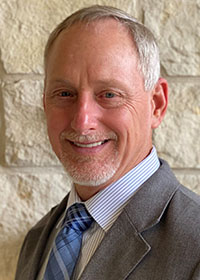 David Kerns
David Kerns
Texas A&M University
Dr. David Kerns is a professor, extension specialist, state IPM coordinator, and associate department head for the Department of Entomology at Texas A&M University. He received his B.S. degree in entomology from Texas A&M University, M.S. degree in entomology from Oklahoma State University, and Ph.D. degree from Auburn University. Kerns served 13 years at the Yuma Agricultural Center with the University of Arizona as an extension specialist, focusing on insect pest management in vegetables and citrus. From 2007 to 2011, he served as an extension specialist at the Texas A&M Research and Extension Center in Lubbock, Texas, where he focused on pest management in cotton. From 2012 to 2017, he served as a research scientist at the Louisiana State University AgCenter Macon Ridge Research Station in Winnsboro, Louisiana, and was awarded the Jack Hamilton Regents Endowed Chair in Cotton Production. In his current position with Texas A&M University, Kerns' research and outreach emphasis is in pest management and developing IPM programs for cotton, corn, sorghum and soybean, and insecticide and Bt resistance in Helicoverpa zea and Spodoptera frugiperda. Over the past five years, Kerns has contributed to the publication of 40 refereed journal articles and 14 extension publications. Since 2017, Kerns has been invited to present research results and insect management recommendations at 66 conferences, including scientific, consultant, grower, and ag-industry venues. Within the past five years, he has received more than $6.3 million in research and extension support and currently operates a laboratory with six graduate students, a research scientist, and an extension program specialist.
Distinguished Achievement Award in Extension
This annual award recognizes outstanding contributions to extension entomology.
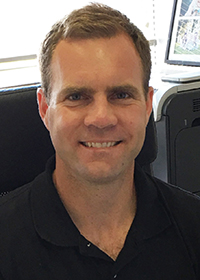 Dominic Reisig
Dominic Reisig
North Carolina State University
Dr. Dominic Reisig is a professor and extension specialist at North Carolina State University with extension and research responsibilities for field crops in the state since 2009. He is based at the Vernon James Center in eastern North Carolina two hours from main campus, providing him with a direct opportunity to collaborate with growers, consultants, and those in the agricultural industry. He received his B.A. in biology, with a Spanish minor (sí, el habla español), from Point Loma Nazarene University. He then received an M.S. in integrated pest management and a Ph.D. in entomology from the University of California, Davis. His extension program has raised awareness of stink bugs as a major pest of corn and has collaborated in the refinement of economic thresholds and reduced sampling time for this pest. Reisig's program has also evaluated economic thresholds for tarnished plant bug in cotton and has collaborated in documenting early evidence of insecticide resistance. Additionally, his program has promoted alternative insecticides to mitigate resistance for this pest and has evaluated a systems approach beyond insecticides for management. Finally, his program led the promotion of egg-based thresholds for bollworm to counter Bt resistance in cotton. Virtually 100% of North Carolina cotton growers are using these thresholds, saving more than $9 million a year. His program has ongoing efforts to develop new management techniques, as well as to try to manage this insect on a wider scale (termed area-wide management). Finally, his program is collaborating with social scientists to increase grower planting of non-Bt refuge corn.
Distinguished Achievement Award in Teaching
This award is presented annually to the member of the Society deemed to be the most outstanding teacher of the year.
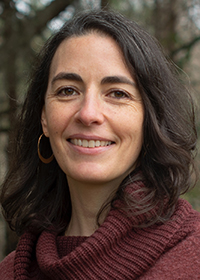 Andrea Lucky
Andrea Lucky
University of Florida
Dr. Andrea Lucky is an associate professor and graduate coordinator in the Entomology and Nematology Department at the University of Florida (UF). She received a bachelor's degree in biology from Brown University in 2000 and a Ph.D. in entomology from the University of California, Davis, in 2010. She spent two years in a postdoctoral position at North Carolina State University, where her work focused on public participation in entomology research through the School of Ants citizen science project. In 2012, she accepted a teaching-focused position at UF. At UF, her courses include introductory entomology for nonscience majors and advanced insect classification for undergraduate entomology majors, minors, and graduate students. Over the past 10 years she has taught more than 1,100 students in these courses and has also taught or co-taught a diversity of other courses, including tropical entomology, social insect biology, collections management, art-and-science collaboration, and invasive ant boot camp. Her involvement with entomology education extends to programmatic roles; she has chaired her college's Curriculum Committee and led a revision of the Entomology Department's undergraduate curriculum, and she currently serves as the department's graduate coordinator, overseeing a program of approximately 120 graduate students.
Lucky maintains an active research program focused on two main areas: 1) ant systematics and ecology, with an emphasis on the consequences of invasive ants, and 2) best practices in entomology education. Her scholarship of teaching and learning portfolio includes research exploring differences between in-person and online delivery of collections-based courses; how participation in research can lead to increased trust in science; and how attitude toward and knowledge of insects are related, across different cultures. Lucky's work has been funded by the U.S. National Science Foundation, the USDA-ARS, and a U.S. William J. Fulbright Scholarship. She has served as major advisor to 10 graduate students, as a committee member on 26 graduate committees, and as a mentor to 35 undergraduates in independent research. More than half of her research publications and all of her extension publications are co-authored with students.
Nan-Yao Su Award for Innovation and Creativity in Entomology
Each year this award is given to an ESA member who is able to demonstrate through his or her projects or accomplishments an ability to identify problems and develop creative, alternative solutions that significantly impact entomology.
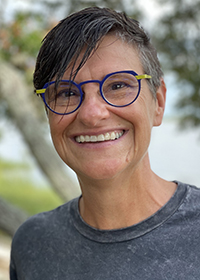 Nina Jenkins
Nina Jenkins
Penn State University
Dr. Nina Jenkins is a research professor in the Department of Entomology at Pennsylvania State University. Her research focuses on the development of fungal biopesticides and novel solutions for management of insect pests.
Jenkins obtained her B.Sc. in applied biology at the University of Greenwich, United Kingdom, and went on to work for CABI Bioscience as part of an international, multidisciplinary team of scientists working on the development of a fungal biopesticide for the control of locusts and grasshoppers in Africa. She completed her Ph.D. while working on that project and took on the role of program manager to oversee the licensing and technology transfer of the product, Green Muscle, to private industry.
After a brief interlude in Australia, as education program manager for the Invasive Animals CRC at the University of Canberra, she moved to Penn State in 2008. Over the past 14 years, Jenkins has explored the development and implementation of fungal biopesticides for a range of insect pests, including mosquitoes, house flies, Asian longhorn beetle, mushroom flies, spotted lanternfly, and bed bugs. Her most notable success has been the development of Aprehend (www.aprehend.com), a fungal biopesticide for the control and prevention of bed bug infestations. Jenkins secured an exclusive license for the patented technology from Penn State, and co-founded CoinidoTec LLC to produce and distribute the product. Since the launch in November 2017, Aprehend sales have increased year on year, and the biopesticide has become one of the most successful products for professional management of bed bugs.
Distinguished Achievement Award in the Promotion of Diversity and Inclusion in the Field of Entomology
This award honors a member or member's team for creating and promoting a diverse and welcoming environment for entomologists in their university, place of employment, or community.
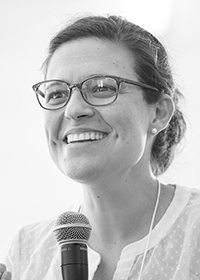 Margarita Lopez-Uribe
Margarita Lopez-Uribe
Penn State University
Dr. Margarita López-Uribe is the Lorenzo L. Langstroth Early Career Professor and an associate professor in the Department of Entomology at Pennsylvania State University. Her research and extension programs aim to understand the unintended consequences of agricultural practices on the health and evolutionary trajectories of bees to help develop sustainable practices through improved management and breeding programs of crops and pollinators. López-Uribe was the recipient of the ESA Early Career Professional Research Award in 2018 and a National Science Foundation (NSF) CAREER Award in 2020. In her lab, López-Uribe has trained students and postdoctoral scholars from different backgrounds to address critical questions in pollinator biology by capitalizing on the human potential and creativity of a diverse team. At Penn State, López-Uribe founded and chaired the Diversity, Equity, and Inclusion Committee in the Department of Entomology, and is co-leading a pan-university initiative that is supporting students from underrepresented groups across five colleges to work on research themes related to climate change and sustainability. With funding from NSF, she currently leads an international research program that trains undergraduate students in the United States and Colombia and prepares them for graduate school. López-Uribe is a member of the ESA Publication Council and president of the American Association of Professional Apiculturists.
Science Communication Award
This award honors impactful and innovative communication projects or programs that engage diverse public audiences with entomology-related scientific information.
- (1st Place) Bugs 101 Massive Open Online Course (MOOC), Maya Evenden, University of Alberta
- (Runner-Up) Entomological News for Hebrew Speakers, Maya Saar, University of Florida
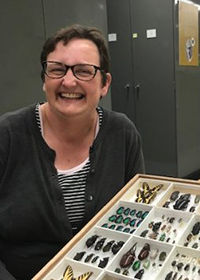 Bugs 101 Massive Open Online Course (MOOC)
Bugs 101 Massive Open Online Course (MOOC)
Maya Evenden, University of Alberta
Dr. Maya Evenden completed both master of pest management (M.P.M.) and Ph.D. degrees at Simon Fraser University, British Columbia. Her Ph.D. research investigated chemical communication and semiochemical-based management of orchard-inhabiting moths. Evenden pursued a postdoctorate at the University of Kentucky. In her first academic appointment at West Chester University, Pennsylvania, Evenden researched orchard agroecosystems and was introduced to undergraduate teaching. Evenden received an NSERC (Natural Sciences and Engineering Research Council) University Faculty Award to join the University of Alberta. In Alberta, Evenden's lab researches chemical and behavioral ecology of insect pests in western Canada. She has published 106 peer-reviewed journal articles and two book chapters, and graduated 10 graduate students from her lab since 2003. In addition to other teaching responsibilities, Evenden led the development of a massive open online course, called Bugs 101: Insect-Human Interactions, that launched in June 2019. This course is freely available around the world and has been developed as an online course for University of Alberta students. As of July 2022, more than 4,000 learners completed the course and over 36,000 learners have registered in the course from more than 130 different countries. Bugs 101 is used for professional development, or as a university-level course for institutions that do not offer entomology courses. Evenden is also active in scholarly service and has served as president of the Entomological Society of Alberta (2006), the Entomological Society of Canada (2010), and the International Branch of ESA (2018).
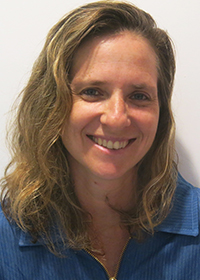 Entomological News for Hebrew Speakers
Entomological News for Hebrew Speakers
Maya Saar, University of Florida
Dr. Maya Saar, a postdoctoral researcher at University of Florida Entomology & Nematology, works with Dr. Andrea Lucky's group on the invasion extent and social structure of the little fire ant in the United States. For the past three years, Saar has volunteered for one of the largest Science Communication NPOs in Israel, Little Big Science, and has served in a leading role as writer, reviewer, and scientific editor. Saar strives to bridge language barriers and bring exciting entomological science closer to her community in Hebrew. Her content has reached approximately 100,000 people on social media, with personal adjustments to the different platforms (NPO website, Twitter, Facebook, Instagram, TikTok, and more) and with no charge. Saar's hope is to raise awareness of the smallest creatures and to encourage others to forget the old concept that nature is a "far-away land." Nature is all around us, even in our backyard, says Saar. This understanding may give people a sense of responsibility and, hopefully, a desire for stewardship over nature. Leading the NPO to equity, Saar also pioneers in giving emphasis to reaching women and girls, while making STEM fields more welcoming and relatable. For example, in Hebrew, there are different female and male words, verbs, and adjectives. When writing or speaking to a crowd, regardless of its proportional content (females/males/them) the rule is to use a "male/them" only. Saar was the first to implement female Hebrew language only in articles of Little Big Science. Despite going against the rules, she believes that actions may change culture to move forward.
ESA Certification Corporation Awards
ACE Professional Award
This award recognizes superior contributions of an Associate Certified Entomologist in the field of structural pest management.
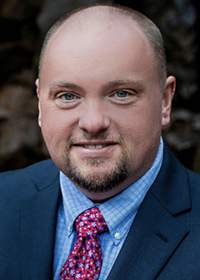 Billy Olesen, ACE
Billy Olesen, ACE
PestStop
Billy Olesen, ACE, chief executive officer of PestStop and registered tribal member of the Three Affiliated Tribes, started in pest control in 2002 working for his dad. His passion for knowledge and his love for a challenge led him into pursuing his certification as an Associate Certified Entomologist (ACE) in 2014. After becoming an ACE, he was appointed to the Kitsap County Noxious Weed Control Board, where he would later become the chairperson. While serving on the board, he advocated for biological controls and applications that consider pollinator health, and he now serves on the Washington State Pollinator Health Taskforce addressing pollinator health in Washington. He was elected to the Washington State Pest Management Association Board, where he now serves as president; he's a graduate of National Pest Management Association's (NPMA's) first Executive Leadership Program class and served on NPMA's Inclusion Diversity Equity Task Force and various other committees.
Olesen credits his ACE certification for opening up opportunities to teach others in and outside the industry about pest management. Olesen says, "When you can help people to make an informed and educated decision about their pest management needs, it's so rewarding; you create a real partnership that solves issues quicker while taking into account and addressing beforehand any concerns they may have." He would encourage anyone who wants to challenge themselves and grow their credibility to pursue getting their ACE certification.
Distinguished Service Award to the Certification Program
This award encourages, recognizes, and rewards outstanding contributions to the ESA Certification Program and the professionalism of entomology.
Patricia Hottel, BCE
Terminix
Patricia Hottel has served the pest management industry for more than 45 years. She specializes in food processing pest management, providing technical and training support for her team members and clients. Geographically, the majority of her work has been in the Midwest for the commercial pest management firm McCloud Services and now Terminix. Prior to moving to the Midwest, Hottel worked in New York, Florida, and the island of Bermuda as a technician, technical director, and in branch management.
Hottel has a bachelor's degree in entomology from the University of Georgia and a master's degree in instructional technology from the University of Central Missouri. The two degrees reflect her career path and enthusiasm for training and entomology.
She is a Board-Certified Entomologist (BCE) and a member of the National Pest Management Association (NPMA) Fumigation Committee. She is a former member of the Board of Directors of NPMA, the Illinois Pest Control Association, and the professional pest management fraternity Pi Chi Omega. She has chaired various industry committees, including the Copesan Technical Committee, NPMA's Commercial Committee, and NPMA's Technical Committee.
Hottel has received numerous awards, including Professional Woman of the Year and Chairperson of the Year for her work on NPMA's Insect Control Committee. She is a recipient of the Syngenta Crown Leadership award for professional pest management. She is a frequent presenter at industry conferences and a regular contributor to food processing and pest management industry trade journals. She is a contributing author to the PCT Guide to Commercial Pest Management.
Early Career Professional (ECP) Awards
Henry and Sylvia Richardson Research Grant
This grant provides research funds to postdoctoral ESA members who have at least one year of promising work experience, are undertaking research in selected areas, and have demonstrated a high level of scholarship.
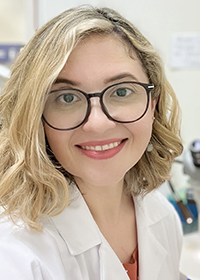 Paulina Maldonado-Ruiz
Paulina Maldonado-Ruiz
Kansas State University
Dr. Paulina Maldonado is a postdoctoral research associate in the Department of Entomology at Kansas State University. Her current research focuses on understanding the tick molecular determinants of red meat allergy induced by the lone star tick bites (Amblyomma americanum). Maldonado's research interests also include elucidating tick osmoregulatory physiology and characterizing the tick microbiome for the development of alternative methods for tick control. One of her short-term goals is to characterize tick bacterial strains to identify taxa that can be exploited for tick management and for the potential reduction of tick vector competence.
Maldonado received her bachelor's degree in biochemistry and her M.Sc. in microbiology (Mexico). She was awarded her Ph.D. in entomology (tick osmoregulatory physiology, management, and microbiome) at Kansas State University. Maldonado has been an active member of her department, serving in different departmental committees as a student; during her postdoc, she has expanded her involvement by organizing a biweekly journal club focusing on modern molecular entomology techniques for the benefit of graduate students and faculties.
Maldonado has been active in ESA by participating in Student Competitions as a graduate student, and by earning awards at the North Central Branch level and the national ESA level. As a postdoc, Maldonado continues her ESA involvement by serving as a judge for ESA Student Competitions and organizing symposia in the ESA Annual Conference.
Early Career Innovation Award
This award honors young professionals working within the field of entomology who have demonstrated innovation through contributions within any area of specialization (research, teaching, extension, product development, public service, etc.).
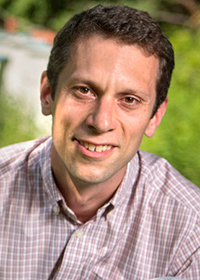 Scott McArt
Scott McArt
Cornell University
Dr. Scott McArt is an assistant professor of pollinator health in the Department of Entomology at Cornell University, where he helps run the Dyce Lab for Honey Bee Studies and the Cornell Chemical Ecology Core Facility. McArt earned his B.A. from Dartmouth College, his M.S. from the University of Alaska–Anchorage, and his Ph.D. from Cornell University. He spent two years as a USDA postdoctoral fellow at the University of Massachusetts–Amherst prior to starting as a nontenure-track research scientist at Cornell in 2014. In 2017, he started as a tenure-track assistant professor. McArt's main research interests are ecotoxicology and disease ecology. His lab is currently focused on understanding how pesticides, pathogens, and habitat impact the health of honey bees and native wild pollinators. He is keenly interested in working with stakeholders (beekeepers, farmers, regulatory agencies, and other members of the public) to do science that addresses real-world problems and improves pollinator conservation and health. This works well with his 60/40 research/extension appointment, which gives him the privilege of interacting with a wide array of passionate people. When not engaged in research, McArt enjoys trying to stay in running shape (often with his loyal dog, James), going on any flavor of outdoor adventure with his family, and amateur nature photography.
ECP Extension Award
This award is given to a student transition or early professional who excels in entomological extension.
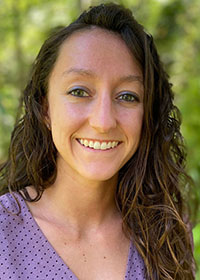 Morgan Pinkerton
Morgan Pinkerton
University of Florida
Dr. Morgan Pinkerton is the sustainable agriculture and food systems extension agent with the University of Florida, Institute of Food and Agricultural Sciences (UF/IFAS) Extension in Seminole County, Florida. She received her B.S. (biology), M.S. (entomology), and doctor of plant medicine (DPM) degrees from UF before joining as extension faculty in 2020. In her graduate studies, her research focused on invasive pentatomids as well as youth education on invasive species and biosecurity.
In her current position, Pinkerton regularly works with farmers and horticulture professionals in Central Florida and across the state. Through in-person and virtual educational programming, field visits, and one-on-one communications, she helps extension clientele increase the economic and environmental sustainability of their operations. In many of her extension programs, she focuses on insect diagnostics, integrated pest management (IPM), pesticides, and invasive species issues. She also teaches content to connect the public with food production to better understand how their food reaches their plate and the challenges farmers face in growing food. This includes a significant dedication toward extension education on entomology and agricultural literacy topics for both adult and youth audiences.
Pinkerton has been active in ESA since 2017, including participation in volunteer and leadership roles. She currently serves on the SEB Entomology Games Committee and is also the SEB representative on ESA's Committee on Diversity and Inclusion. She is a previous recipient of the SEB Kirby Hays M.S. Student Award, and she participated in the Entomology Games while a student.
ECP Research Award
This award recognizes a student transition or early professional who has made outstanding research contributions to the field of entomology.
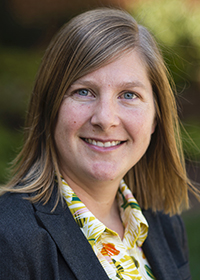 Karin Burghardt
Karin Burghardt
University of Maryland
Dr. Karin T. Burghardt is an assistant professor in the Entomology Department at the University of Maryland, College Park, and a research associate at the Smithsonian Environmental Research Center. Trained as a community ecologist, her lab's research program focuses on understanding the ecological principles shaping plant-insect interactions in human-modified landscapes such as suburban yards, urban greenspaces, and managed forests. The empirical results of this research form the backbone of the lab's extension program, which targets the establishment of evidenced-based, best practices for urban and suburban green space care. The goal is to promote activities that allow humans to share space with a variety of native flora and fauna and maintain vital ecosystem functions. Burghardt is an active civic participant through both urban forestry initiatives and municipal committee work. She received her Ph.D. in ecology and evolutionary biology from Yale University working with Dr. Oswald Schmitz on herbivore-induced defenses in goldenrod plants. Prior to that, she received a B.S. from the University of Delaware, working with Dr. Douglas Tallamy on the role of native and nonnative plants in ecosystems. More information on the lab's work is available at www.burghardtlab.org.
ECP Teaching Award
This award is given to a student transition or early professional who excels in entomological education.
Ashleigh Faris
Texas A&M University
Dr. Ashleigh Faris is an instructional assistant professor in the Department of Entomology at Texas A&M University (TAMU). She received her B.S. in entomology from TAMU, received her M.S. in forensic science from Sam Houston State University, and completed her Ph.D. in entomology at TAMU under the direction of Dr. Aaron Tarone. She served as postdoctoral research associate with Dr. Michael Brewer's field crops entomology group at Texas A&M AgriLife Research in Corpus Christi, Texas.
Faris teaches various undergraduate and first-year experience courses in the Forensic and Investigative Sciences (FIVS) Program and Department of Entomology (ENTO). She is also the department coordinator for ENTO and FIVS undergraduate internships and research, advises undergraduate-led research on forensic science topics, and serves on graduate student committees related to field crops and forensic entomology. Her scholarship of teaching and learning interests are diversity and inclusion for equitable undergraduate education, the interdisciplinary role of insects outside of entomology-based education, and course development/redesign for improving undergraduate retention. Faris was selected as a 2021 Inclusive Teaching Faculty Fellow through the TAMU Center for Teaching Excellence. She has adapted coursework for inclusion of Aggie Achieve students (young adults with intellectual and developmental disabilities) through modifications that remove barriers to learning so all students can flourish together in the same classroom environment. Faris has organized and presented symposia focused on entomology and its utility in interdisciplinary undergraduate education. She serves as the faculty advisor for the Aggie Forensic and Investigative Sciences Organization and the Aggie Art Therapy Organization.
Student Awards
Alate Award
This grant honors students currently enrolled at Historically Black Colleges and Universities (HBCUs) and other Minority-Serving Institutions (MSI), to promote interest in entomology and to stimulate interest in attending the ESA Annual Meeting.
- Jonathan Hernandez, Texas A&M University
- Brenda Leal-Galvan, Texas A&M University
- Jesus Raymond Mireles, California State University, Fresno
- Jessica Webb, University of California, Riverside
 Jonathan Hernandez
Jonathan Hernandez
Texas A&M University
Jonathan R. Hernandez is a Ph.D. student at Texas A&M University's Department of Entomology. He is under the guidance of Dr. Patricia V. Pietrantonio. His dissertation research focuses on the control of the yellow fever mosquito, Aedes aegypti.
His research interests are insect physiology and toxicology utilizing integrative molecular, cellular, and practical approaches to address the control of disease vectors. Currently, Hernandez is investigating insecticide resistance in females of Aedes aegypti from Harris County and the effect this resistance has on potential control interventions.
Prior to his doctoral studies, Hernandez received a B.S. in biology from Texas A&M University–San Antonio, where he participated in vector mosquito surveillance using ovitraps in San Antonio, Texas. He also researched nanostructured materials at Iowa State University in the Vela Laboratory. After finishing his undergraduate studies, Hernandez assisted in microencapsulation research at the Southwest Research Institute's Chemistry and Chemical Engineering Division as a research technician.
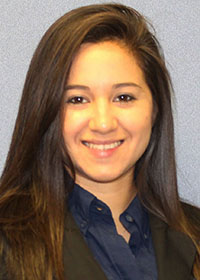 Brenda Leal-Galvan
Brenda Leal-Galvan
Texas A&M University
Brenda Leal-Galvan is a Ph.D. student under the direction of Dr. Chavez in the Department of Entomology, Texas A&M University (TAMU). Her dissertation consists of elucidating the differences and commonalities of the microRNA profiles and extracellular vesicles and the salivary glands, between Ixodes scapularis and Rhipicephalus (Boophilus) microplus. Moreover, she will investigate the molecular mechanism behind microRNA packing into exosomes in ticks. Ticks have caused global devastation and are vectors of several pathogens that produce morbidity and mortality in humans. The traditional method to control ticks is acaricides; however, building acaricidal resistance is inevitable. With her research, she hopes to discover conserved mechanisms that facilitate tick feeding to define novel targets that can be exploited for the management of tick populations.
Leal-Galvan received her B.S. in general biology at the University of Texas Pan American and an M.S. in general biology at the University of Texas Rio Grande Valley. Her thesis work was centered around how seasonal climatic factors affect tick questing. However, her true passion lies with understanding all interactions between a vector and its host.
In TAMU, she has been vice president for Aggie Women in Entomology and a member of the Entomology Graduate Student Organization. Leal-Galvan has mentored multiple students throughout her academic career, two of whom have published in respectable journals. She has also mentored minority graduate students and has volunteered in several outreach events to educate low-income and Spanish-speaking communities, the general public, elementary and high schools, and livestock handlers on the importance of tick research.
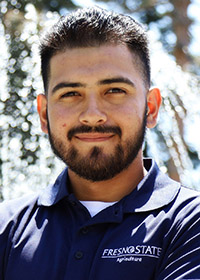 Jesus Raymond Mireles
Jesus Raymond Mireles
California State University, Fresno
Jesus Raymond Mireles is a first-generation Chicano college student born and raised in California's Central Valley. In 2020, he achieved his bachelor's of plant science at California State University, Fresno. He has gained experience in the agrochemical and technological research industry as a research technician with Bayer Crop Science. Working under an entomologist, Dr. Raksha Kuenen of Bayer Crop Science, he gained experience in identifying common insect pests and methods of control in California cropping systems. In 2020, Mireles was elected to assist Dr. Drew Palrang and Dr. Michael Schlemmer with the development of the Bayer Crop Science UAV program, where he played a key role in the establishment and operation of UAS technology used to assess plant health.
Mireles attained a competitive fellowship with Bayer Crop Science, where he was given the opportunity to continue his academic career at Fresno State and pursue a master's degree in plant science. With research experience in entomology and industrial technology, he combined his interest into his master's thesis. His research entails the utilization of remote sensing technologies to establish a monitoring protocol for assessing spider mite damage in almonds. While almond acreage in the Central Valley has increased over the past decade, spider mite monitoring methods remain unchanged, emphasizing time-consuming counts under a hand lens. Considering these conditions, his research would be instrumental in resolving gaps in the scientific literature, while potentially meeting the demand for a more efficient spider mite monitoring method.
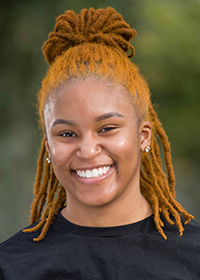 Jessica Webb
Jessica Webb
University of California, Riverside
Jessica Webb received her bachelor's degree in biology from Jackson State University (JSU). While pursuing her B.S., she received a research fellowship from the National Oceanic and Atmospheric Association and began conducting research on the temporal dynamics of benthic invertebrate communities, while simultaneously exploring the evolution of the mitochondrial genome of Taltrid amphipods. This sparked her interest in research and led her to do a summer undergraduate research experience through the National Science Foundation at Michigan State–Kellogg's Biological Station, where she researched the effects of prairie restorations on abundance and diversity of native pollinators including wasps, butterflies, and native bees. It was there that Webb realized her love of bees and decided to pursue a Ph.D. in entomology.
Webb is now a fourth-year Ph.D. candidate at the University of California, Riverside (UCR), where she was awarded a Dean's Distinguished Fellowship working with Dr. Boris Baer in the Center for Integrative Bee Research (CIBER). She is studying antifungal metabolites found in the seminal fluid of Apis mellifera drones to develop a novel medication for managed honey bee colonies to treat the gut microsporidian, Nosema ceranae. This type of research has led her to collaborative research efforts between CIBER and local hobbyist and industry beekeepers. She has been invited to give talks at local beekeeper meetings and is currently involved in organizing a bee health conference at UCR to bring together researchers and beekeepers to discuss and develop tools to manage bee health.
At UCR, Webb continually contributes to the teaching activities around the Bees and Beekeeping course on campus. She frequently mentors student researchers at both the high school and undergraduate level. Webb has also shown sustained personal engagement with underrepresented groups as she is a member of the UCR Entomology Department Diversity, Equity, and Inclusion Committee and is a graduate student mentor for UCR's Black Student Mentorship Program. She is also currently collaborating with faculty at her alumni HBCU institution to establish an Entomology Department and Bee Research Center at JSU, in hopes of increasing diversity in the field of entomology.
The Larry Larson Graduate Student Award for Leadership in Applied Entomology
This ESA award, sponsored by Corteva, recognizes Dr. Larry Larson's role as a leader and pioneer in insect management and carries that legacy to the next generation of leaders in applied entomology.
Leonardo Salgado
Cornell University
Leonardo "Leo" Salgado received his bachelor's degree in agricultural sciences at Universidad Nacional de Agricultura (UNAG) in Honduras. After graduating, Salgado joined Louisiana State University (LSU) to pursue a master's degree in entomology with a minor in applied statistics working on integrated pest management under the direction of Dr. Blake Wilson. While at LSU, Salgado was the president and a founding member of UNAs at LSU, an association connecting UNAG students with LSU faculty members to gain experiences in international agricultural research and supporting UNAG students to pursue graduate education at LSU.
Currently, Salgado is a Ph.D. student in the Department of Entomology at Cornell University under the direction of Dr. Brian Nault. His projects involve: 1) determining the onion maggot and seedcorn maggot composition early in the season when onions are most vulnerable to maggot attack, 2) comparing the efficacy of various insecticide seed treatments of onions in the field, 3) assessing maggot susceptibility to seed treatment insecticides by laboratory bioassays, and 4) determining if the size of the production region could influence the population genetic structure of maggot species in onion fields.
Salgado has been an active member of ESA since the beginning of his graduate studies. He has presented his research at branch and national meetings, organized a mini workshop, and participated in the EntoMentos program. In addition, he received the Kirby L. Hays Memorial Award from the Southeastern Branch in 2022. Salgado would like to thank ESA and Corteva for this award.
Lillian and Alex Feir Graduate Student Travel Award in Insect Physiology, Biochemistry, or Molecular Biology
The purpose of this ESA award is to encourage graduate students working with insects or other arthropods in the broad areas of physiology, biochemistry, and molecular biology to affiliate with ESA's Integrative Physiological and Molecular Insect Systems Section and to attend the ESA Annual Meeting.
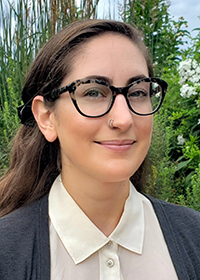 Molly Darlington
Molly Darlington
University of Nebraska-Lincoln
Molly Darlington is a Ph.D. candidate in the Insect Toxicology Lab at the University of Nebraska–Lincoln under the advisement of Dr. Ana Maria Vélez. Her dissertation furthers our understanding of the RNAi mechanism in the western corn rootworm (WCR), the first insect pest targeted by RNA technology. More specifically, her work evaluates the effect development, physiological variation, and gene expression have on WCR dsRNA susceptibility through the combination of molecular biology, toxicology, and computational methodologies.
As an ESA member, Darlington represented PBT on the Student Affairs Committee, co-organized the Student Debates, co-wrote and edited pieces for the American Entomologist Student Life section, co-organized symposia for PBT and P-IE at national meetings, published in Journal of Insect Science, and reviewed submissions for Journal of Economic Entomology.
During her graduate career, Darlington participated in a year-long intellectual property internship at NUtech Ventures, a nonprofit technology commercialization organization, and a second internship with RNAiSSANCE AG, a startup working to commercialize RNAi technology for a variety of insect pests. These experiences helped inform her decision to embark on a career working to develop and commercialize innovative and environmentally considerate biotechnology solutions in the pest management space.
Student Activity Award
Sponsored by Bayer, this award will be presented annually to recognize a student for outstanding contributions to the Society, their academic department, and the community, while still achieving academic excellence.
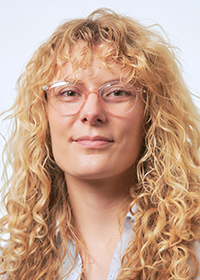 Hailey Shanovich
Hailey Shanovich
University of Minnesota
Hailey Shanovich is a Ph.D. candidate in the Natural Resource Science and Management program, advised by Dr. Brian Aukema, in the Department of Entomology at the University of Minnesota (UMN). Their dissertation research focuses on arthropod pest ecology in newly developed hybrid hazelnuts. They have held multiple leadership roles within ESA and UMN; most notable are chair of the North Central Branch SAC, president of UMN's Entomology Student Association (Frenatae), outreach coordinator of UMN's Natural Resource Association of Graduate Students, and Steering Committee member for UMN's Association for Gender Diversity in STEM. They have organized many outreach activities and have served on several committees in their program and department. Shanovich has published six peer-reviewed articles in ESA journals and has six more in progress, including four they have co-authored with their mentees. Shanovich has also contributed to ESA by presenting their research findings at annual meetings and branch meetings since 2017, serving on the Local Arrangements Committee for the 2022 North Central Branch Meeting, organizing three symposia at various meetings, serving as a moderator, participating in the Entomology Games, writing for Entomology Today, and submitting a common name proposal. In their free time, Shanovich enjoys scientific illustration, gardening, camping, fiber arts, and spending time with their dog Mila. They were awarded ESA's Larry Larson Award for Leadership in Entomology in 2020. Shanovich is honored to be a recipient of this award and is excited to continue to work for their passions in advocacy and effective outreach.
John Henry Comstock Award
These six awards are given to one graduate student from each ESA Branch to promote interest in entomology and to stimulate interest in attending the ESA Annual Meeting.
- Lídia Gual Gonzalez, University of South Carolina (ESA International Branch)
- James Hepler, USDA-ARS (ESA Pacific Branch)
- Maggie Lewis, Ohio State University (ESA Eastern Branch)
- Alex Payne, Texas A&M University (ESA Southwestern Branch)
- Anh Tran, ISK Biosciences (ESA North Central Branch)
- James Villegas, Louisiana State University (ESA Southeastern Branch)
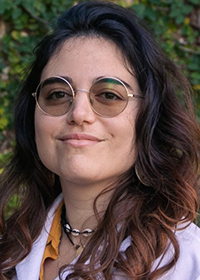 Lídia Gual Gonzalez
Lídia Gual Gonzalez
University of South Carolina
Lídia Gual Gonzalez is an epidemiology Ph.D. candidate at the University of South Carolina, working in Dr. Melissa Nolan's Laboratory of Vector-Borne and Zoonotic Diseases. She has recently collaborated with the Boyacá Health Department in Tunja, Colombia, working with the Vector Diseases Control Unit to help in a triatomine control study to reduce Chagas disease risk in rural communities. In addition to her work with triatomines and Chagas disease, her current dissertation focuses on tick-borne Spotted Fever Group Rickettsiosis in Colombia. With a multidisciplinary background, her career shifted from bench science with a bachelor's degree in biomedical sciences, to a more clinical research focus in her master's in one health and zoonotic diseases at the Autonomous University of Barcelona, Spain. This experience has exponentially grown her passion for medical and veterinary entomology. She has worked in field epidemiology doing research in tick- and flea-borne diseases in Uganda, and in clinical laboratory research in chronic Chagas disease in Spain. As the first in her family to pursue a graduate degree, her ambition and determination have brought her to pursue a career as an international vector-borne disease researcher, and she aims to help reduce health disparities throughout her career.
 James Hepler
James Hepler
USDA-ARS
Dr. James (Jim) Hepler received his Ph.D. from Washington State University (WSU) in 2021, where his dissertation research examined the landscape ecology and management of the brown marmorated stink bug (BMSB) in the Pacific Northwest. His areas of study included the suitability of the semi-arid shrub-steppe flora for BMSB feeding and development, BMSB management in commercial fruit orchards using long-lasting insecticide netting, and the potential nontarget impacts of BMSB's primary parasitoid. He was also awarded a NIFA-EWD Predoctoral Fellowship to apply techniques of molecular gut content analysis to the BMSB system and was the recipient of the ARCS Foundation Fellowship. During his time with ESA as a student, he competed successfully in Student 10-Minute Paper competitions and on WSU's Student Debates and Linnaean Games Teams. Hepler is now a postdoctoral researcher with the USDA at the Appalachian Fruit Research Station in Kearneysville, West Virginia. His research focuses on the biology and ecology of the spotted lanternfly, with an emphasis on gut content analysis.
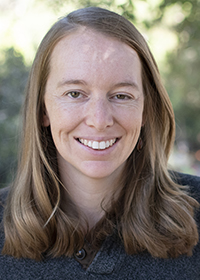 Maggie Lewis
Maggie Lewis
Ohio State University
Dr. Maggie Lewis received her Ph.D. in entomology from the University of Maryland under the supervision of Dr. Kelly Hamby. She previously completed her B.S. in molecular environmental biology at the University of California–Berkeley and her M.S. in entomology with Dr. Shelby Fleischer at Pennsylvania State University. Throughout her graduate career, Lewis has worked to advance integrated pest management in a variety of fruit and vegetable cropping systems. Her dissertation research broadly focused on applying knowledge of the ecology and behavior of spotted-wing drosophila for more sustainable management, with a particular emphasis on its interactions with yeast and hyphal fungal microbes. In addition to her research, Lewis mentored multiple undergraduate student researchers during her Ph.D. and actively engaged in extension outreach to small fruit growers and other stakeholders. Lewis is currently an NSF postdoctoral fellow at the Ohio State University, where her current research aims to understand how abiotic stressors impact host plant resistance in soybeans.
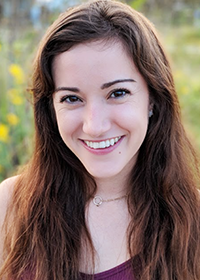 Alex Payne
Alex Payne
Texas A&M University
Alexandria (Alex) Payne is a Ph.D. candidate studying the disease ecology of honey bees in the laboratory of Dr. Juliana Rangel, associate professor of apiculture in the Department of Entomology at Texas A&M University. Her research incorporates aspects of virology, ecology, and honey bee biology to better understand the interactions between honey bees and their associated pathogens. She received her B.S. from Texas A&M University, where she double majored in bioenvironmental sciences and wildlife and fisheries sciences. She worked as an undergraduate research assistant in Rangel's laboratory before deciding to continue her education under her guidance and pursue a Ph.D. degree. She is graduating in May 2022 and has accepted a postdoctoral research associate position in the laboratory of Dr. Adam Dolezal at the University of Illinois at Urbana–Champaign, studying the bee-microbe interactions.
 Anh Tran
Anh Tran
ISK Biosciences
Dr. Anh K. Tran completed M.S. (2016) and Ph.D. (2021) degrees in entomology from the University of Minnesota. Tran's M.S. was under the guidance of Dr. Robert (Bob) Koch studying conservation biological control of the soybean aphid. Tran was co-advised by Dr. Sujaya Rao and Dr. Mary Rogers for their Ph.D., and their dissertation focused on investigating spotted-wing drosophila ability to overwinter or perform long-distance dispersal to survive in cold regions. Tran is currently the insecticide product development manager at ISK Biosciences located in Concord, Ohio. Tran is responsible for managing and developing current chemistries owned by ISK Biosciences throughout the United States and Canada, as well as providing technical support for ISK Biosciences insecticide products. Tran's goal is to assist growers with their pest management and insecticide resistance programs.
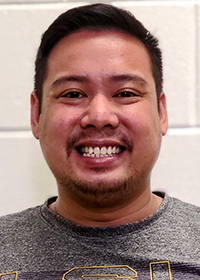 James Villegas
James Villegas
Louisiana State University
James Villegas is an assistant professor (field crops entomology) at the Louisiana State University (LSU) AgCenter. He has statewide extension and research responsibilities working in all field crops, including soybean, cotton, corn, grain sorghum, and wheat. His general research interests involve both applied and fundamental aspects of plant-insect interactions in crop agroecosystems. He takes a holistic approach to insect pest management by integrating various control tactics that can help maximize grower profitability and promote sustainable approaches. Villegas received his doctorate in entomology at LSU in the fall of 2021, where he investigated the role of plant tolerance and cultural tactics for the management of rice water weevil and the invasive stem-boring species, the Mexican rice borer. He also obtained a master's in entomology with a minor in applied statistics at LSU in 2017. His master's thesis was focused on the interactive effects of nitrogen fertilization and soil silicon amendment on insect pest complex. Prior to joining LSU in 2015, Villegas was a researcher at the International Rice Research Institute, where he was involved in a countrywide project utilizing ecological engineering approaches to restore and conserve ecosystem services. Villegas received his bachelor's degree in life sciences with a specialization in molecular biology and biotechnology from Ateneo de Manila University, Philippines, in 2012. In his free time, Villegas likes to explore new places with his wife and two kids, who are growing up way too fast.

